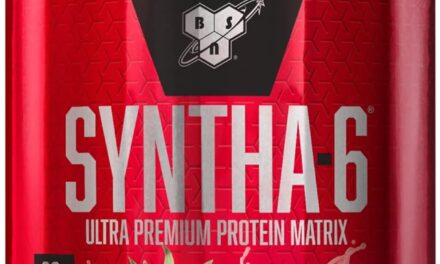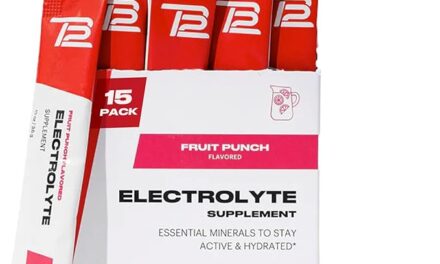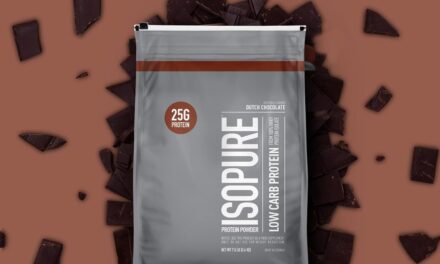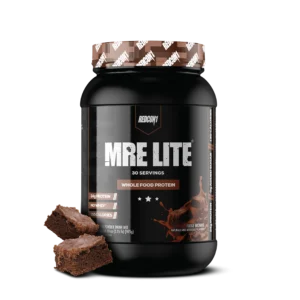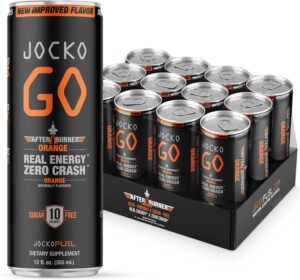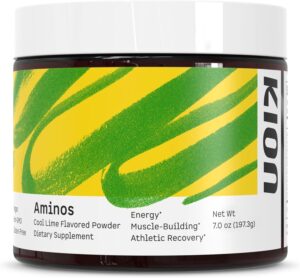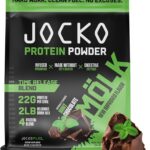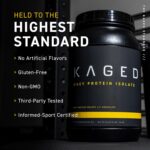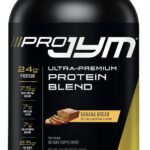
The 5 Best Supplements for Building Muscle Faster

Are you looking for the best supplements to help you build muscle faster? Look no further! In this informative video, all the top supplements for muscle growth are discussed. The video covers everything from creatine to protein powder to HMB and more. Based on scientific research, this article provides unbiased information without any promotion of specific brands or affiliate links. With timestamps provided for each supplement, you can easily navigate to the section that interests you the most. Don’t waste your time or money on supplements that aren’t effective – let this article guide you towards the best options for achieving your muscle-building goals.

Creatine
Types of Creatine
There are several different types of creatine available on the market. The most well-researched and proven form of creatine is creatine monohydrate. However, there are also other forms such as creatine hydrochloride (HCl), creatine ethyl ester, and creatine nitrate. The hydrochloride and mesylate forms of creatine are more soluble in water and are believed to reduce bloating and cramping. It’s important to note that while these alternative forms may have their benefits, creatine monohydrate is still the most widely used and cost-effective option.
Recommended Dosage
The recommended dosage for creatine supplementation varies depending on your body weight and goals. It is generally recommended to start with a loading phase, where you consume 20 grams of creatine per day for five to seven days. After the loading phase, you can move on to a maintenance phase where you consume 3-5 grams of creatine per day. However, some people may choose to skip the loading phase and start with the maintenance phase directly. It’s important to note that everyone’s body is different, so it’s always best to consult with a healthcare professional or follow the instructions on the specific product you are using.
Effects on Muscle Building
Creatine is considered the most effective natural muscle-building supplement. It has been shown to increase energy, improve performance, increase strength, and enhance muscle recovery. Research has consistently shown that athletes on creatine for up to three months have gained an additional 2-6 1/2 pounds of lean body mass compared to those who did not take creatine. Creatine works by increasing the availability of phosphocreatine in the muscles, which helps to produce more ATP (adenosine triphosphate), the primary source of energy for muscle contractions.
Benefits of Creatine
In addition to its impact on muscle building, creatine has other benefits as well. It has been found to have a positive effect on cognitive function, improving memory and performance in tasks that require short-term memory and quick thinking. Creatine has also been shown to have a neuroprotective effect, helping to protect the brain from damage caused by oxidative stress. Additionally, creatine has been studied for its potential benefits in treating certain neurological diseases such as Parkinson’s and Alzheimer’s.
Research Backed Information
There is extensive research supporting the effectiveness of creatine as a muscle-building supplement. A meta-analysis published in the Journal of Physiology found that creatine had the most significant impact on muscle mass compared to 250 other supplements. The International Society of Sports Nutrition (ISSN) also supports the use of creatine to augment lean mass and strength gains with resistance training. It is important to note that individual responses to creatine may vary, and some people may not experience the same benefits. However, the overall body of research suggests that creatine is a safe and effective supplement for muscle building.
Protein Powder
Animal-based Protein Powders
Animal-based protein powders, such as whey and casein, are derived from milk and are considered complete proteins, meaning they contain all of the essential amino acids that your body needs. These proteins have been shown to have higher protein synthesis rates compared to plant-based sources. Animal-based protein powders are an excellent choice for individuals looking to support muscle growth and repair.
Whey Protein
Whey protein is one of the most popular and widely used protein powders among athletes and fitness enthusiasts. It is fast-absorbing and has a high concentration of branched-chain amino acids (BCAAs), with leucine being the most important for muscle growth. Whey protein has been shown to have a better amino acid profile for muscle growth compared to other protein sources.
Casein Protein
Casein protein is slower-digesting compared to whey protein. It forms a gel-like substance in the stomach, which slows down the rate of digestion and provides a slow and steady release of amino acids over an extended period. This slow-release effect may increase muscle fiber size and strength.
Protein Synthesis Rates
Protein synthesis is the process by which your body builds new proteins, including muscle tissue. Protein powders, particularly those that contain essential amino acids, can increase protein synthesis rates and promote muscle growth and repair. Animal-based protein powders have been shown to have faster protein synthesis rates compared to plant-based protein sources.
Importance of Protein Intake
Protein intake is crucial for muscle building and repair. It provides the necessary amino acids for protein synthesis and supports recovery after intense workouts. The recommended daily intake of protein varies depending on factors such as body weight, activity level, and goals. It is generally recommended to consume around 0.8-1 gram of protein per pound of body weight for active individuals.
HMB (Beta-Hydroxy Beta-Methylbutyrate)
Recommended Dosage
The International Society of Sports Nutrition recommends a dosage of 38 milligrams of HMB per kilogram of body weight. This works out to be approximately 3-4 grams of HMB for most individuals. It is recommended to divide the daily dose into two or three servings and to take one dose before your workout for optimal results.
Effects on Muscle Building
HMB supplementation has been shown to improve strength, speed, muscle size, endurance, and recovery. HMB is a byproduct of leucine, which is one of the most important amino acids for muscle growth. HMB obtained from leucine can slow down protein breakdown rates and promote muscle protein synthesis. While there are mixed results in the research on the effectiveness of HMB, the International Society of Sports Nutrition has recognized its benefits and recommends its use.
Benefits of HMB
HMB supplementation has been found to have several benefits for muscle building and athletic performance. It can reduce muscle protein breakdown, increase protein synthesis, improve muscle strength, enhance endurance, and aid in muscle recovery. HMB is particularly effective for individuals who train in a fasted state, as it helps to reduce muscle breakdown rates during workouts.
Research Backed Information
The effectiveness of HMB as a muscle-building supplement is supported by research. While some studies have shown mixed results, there is enough evidence for the International Society of Sports Nutrition to make a position statement on its effectiveness. The specific benefits of HMB may vary depending on individual factors and training protocols, but overall, HMB has been found to be a beneficial supplement for muscle growth and athletic performance.
Branch Chain Amino Acids (BCAA)
Importance of Amino Acids
Amino acids are the building blocks of protein and are essential for muscle growth and repair. BCAAs, which include leucine, isoleucine, and valine, are particularly important for muscle protein synthesis. BCAAs cannot be produced by the body and must be obtained through diet or supplementation.
BCAA and Muscle Growth
BCAAs have been shown to stimulate muscle protein synthesis and promote muscle growth. Leucine, in particular, is a key amino acid that activates the mTOR pathway, which is responsible for regulating muscle protein synthesis. Incorporating BCAA supplementation into your exercise routine can enhance muscle growth and repair.
Increased Protein Synthesis
BCAAs can increase protein synthesis rates, thereby facilitating muscle growth and repair. They provide the necessary amino acids for protein synthesis and can enhance the anabolic response to resistance training. BCAA supplementation is especially beneficial during periods of calorie restriction or fasting when protein intake may be limited.
Enhanced Endurance
BCAAs can help improve endurance during exercise. They can help prevent muscle fatigue by reducing the production of serotonin in the brain, which is a neurotransmitter associated with fatigue. BCAAs can also be used as a fuel source during prolonged exercise, sparing muscle glycogen and preserving energy levels.
Research Backed Information
Research supports the role of BCAAs in muscle growth, protein synthesis, and endurance. Studies have shown that BCAA supplements can increase muscle protein synthesis, improve performance in endurance activities, and reduce muscle soreness and fatigue. Incorporating BCAAs into your workout routine can provide numerous benefits for muscle building and athletic performance.
Pre-Workout Supplements
Benefits of Pre-Workout Supplements
Pre-workout supplements are designed to provide an energy boost, enhance focus, and improve performance during workouts. They usually contain a combination of ingredients, including caffeine, BCAAs, creatine, and nitric oxide boosters, among others. Pre-workout supplements can help increase energy levels, delay fatigue, and improve overall workout performance.
Ingredients to Look for
When choosing a pre-workout supplement, it’s important to consider the ingredients. Look for supplements that contain ingredients such as caffeine, BCAAs, creatine, and beta-alanine. These ingredients have been shown to enhance energy, improve focus, and increase muscle strength and endurance.
Increased Energy and Focus
One of the primary benefits of pre-workout supplements is their ability to provide a boost of energy and improve focus. Ingredients such as caffeine can help increase alertness and reduce fatigue, allowing you to train harder and for longer durations.
Improved Performance and Recovery
Pre-workout supplements can also enhance overall performance during workouts. Ingredients such as BCAAs, creatine, and beta-alanine can improve muscle strength, endurance, and recovery. These ingredients work together to increase protein synthesis, delay fatigue, and promote muscle repair and growth.
Research Backed Information
Research supports the use of pre-workout supplements to enhance energy, focus, and performance during workouts. Studies have shown that ingredients such as caffeine, BCAAs, and creatine can improve strength and endurance, reduce fatigue, and promote muscle growth and recovery. However, it’s important to note that individual responses to pre-workout supplements may vary, and it’s essential to follow the recommended dosages and guidelines.
Mass Gainers
What are Mass Gainers
Mass gainers are a type of supplement designed to help individuals gain weight and build muscle mass. They typically contain a combination of protein, carbohydrates, fats, and additional nutrients. Mass gainers can provide a significant calorie surplus, making it easier to consume the necessary calories for muscle growth.
Benefits of Mass Gainers
The primary benefit of mass gainers is their ability to provide a high-calorie intake, which is essential for muscle building and weight gain. They can help individuals who struggle to consume enough calories through food alone by providing a convenient and concentrated source of nutrients.
Ingredients and Nutrient Composition
Mass gainers typically contain a blend of proteins, carbohydrates, and fats. The protein component is usually a combination of whey protein concentrate, whey protein isolate, and casein protein. The carbohydrate component may include complex carbohydrates such as maltodextrin and oat flour. Fats can come from sources such as MCT oil or flaxseed oil.
Considerations for Use
While mass gainers can be beneficial for individuals looking to gain weight and build muscle mass, it’s important to consider a few factors. First, it’s essential to choose a mass gainer that aligns with your specific goals and calorie needs. It’s also important to ensure that you are still consuming a balanced diet and that the mass gainer is not the sole source of nutrition.
Research Backed Information
The use of mass gainers as a strategy to support weight gain and muscle mass is supported by research. Studies have shown that supplementing with mass gainers can lead to increased calorie intake, muscle mass, and strength gains. However, it’s important to note that mass gainers should be used in combination with a balanced diet and exercise program for optimal results.
Testosterone Supplements
Importance of Testosterone for Muscle Building
Testosterone is a hormone that plays a crucial role in muscle building and development. It is responsible for promoting protein synthesis, increasing muscle mass, and enhancing muscle strength. Testosterone also plays a role in regulating mood, libido, and overall health.
Deficiency and its Impact
Low testosterone levels can have a negative impact on muscle building and athletic performance. Symptoms of low testosterone include decreased muscle mass, reduced strength, fatigue, decreased libido, and mood swings. Testosterone deficiency can affect both men and women, although it is more commonly associated with males.
Vitamin D Supplementation
Vitamin D supplementation has been shown to have a positive effect on testosterone levels. Vitamin D deficiency is prevalent, especially in individuals with limited sun exposure. Studies have found that supplementing with vitamin D can increase testosterone levels, particularly in individuals with low vitamin D levels.
Natural Ways to Boost Testosterone
In addition to supplementation, there are natural ways to boost testosterone levels. Regular exercise, especially resistance training, can increase testosterone production. A healthy diet that includes adequate protein, healthy fats, and essential micronutrients is also important for testosterone production. Getting enough sleep, managing stress, and maintaining a healthy weight can also support optimal testosterone levels.
Research Backed Information
Research supports the importance of testosterone for muscle building and the impact of testosterone deficiency on muscle mass and strength. Studies have shown that low testosterone levels can be improved through supplementation, particularly with vitamin D. Additionally, lifestyle factors such as exercise, diet, sleep, and stress management can also play a role in supporting optimal testosterone levels.
Importance of Protein Intake
Protein and Muscle Building
Protein plays a vital role in muscle building and repair. It provides the essential amino acids that are necessary for protein synthesis, which is the process by which your body builds new proteins, including muscle tissue. Consuming an adequate amount of protein is crucial for promoting muscle growth and recovery.
Recommended Daily Intake
The recommended daily intake of protein varies depending on factors such as body weight, activity level, and goals. For individuals involved in regular resistance training or intense physical activity, it is generally recommended to consume around 0.8-1 gram of protein per pound of body weight. This ensures that your body has enough amino acids to support muscle growth and repair.
Sources of Protein
Protein can be obtained from both animal and plant-based sources. Animal-based protein sources, such as meat, poultry, fish, eggs, and dairy, are considered complete proteins as they contain all of the essential amino acids. Plant-based protein sources, such as legumes, tofu, tempeh, and quinoa, can also provide an adequate amount of protein, but may need to be combined to ensure all essential amino acids are consumed.
Timing of Protein Consumption
The timing of protein consumption can also play a role in muscle building and recovery. Consuming protein immediately after exercise has been found to be more anabolic (muscle-building) compared to ingesting it at a later time. This is because the muscles are more receptive to protein synthesis immediately after exercise, and consuming protein during this window can enhance the muscle’s ability to repair and grow.
Research Backed Information
Research consistently supports the importance of protein intake for muscle building and recovery. Studies have shown that protein intake at amounts greater than around 0.8-1 gram per pound of body weight does not further contribute to muscle gains induced by resistance training. Additionally, research has also found that the timing of protein consumption, particularly after exercise, plays a role in muscle protein synthesis. Incorporating an adequate amount of protein into your diet, along with proper timing, is essential for optimizing muscle growth and recovery.
Recommended Dosages for Supplements
Creatine
The recommended dosage for creatine supplementation varies depending on factors such as body weight and goals. It is generally recommended to start with a loading phase, where you consume 20 grams of creatine per day for five to seven days. After the loading phase, you can move on to a maintenance phase where you consume 3-5 grams of creatine per day. However, some individuals may choose to skip the loading phase and start with the maintenance phase directly. It’s important to consult with a healthcare professional or follow the instructions on the specific product you are using.
HMB
The International Society of Sports Nutrition recommends a dosage of 38 milligrams of HMB per kilogram of body weight. This works out to be approximately 3-4 grams of HMB for most individuals. It is recommended to divide the daily dose into two or three servings and to take one dose before your workout for optimal results.
BCAA
The optimal dosage of BCAAs depends on factors such as body weight, activity level, and goals. A typical dosage is around 5-10 grams of BCAAs before and/or after exercise. It’s important to follow the instructions on the specific product you are using and consult with a healthcare professional if needed.
Pre-Workout Supplements
The recommended dosage of pre-workout supplements varies depending on the specific product and its ingredients. It’s important to follow the instructions on the packaging and not exceed the recommended dosage. If you have any underlying medical conditions or are taking other medications, it’s always best to consult with a healthcare professional before starting any new supplement regimen.
Testosterone Supplements
The recommended dosage for testosterone supplements varies depending on the specific product. It’s important to follow the instructions on the packaging and consult with a healthcare professional before starting any testosterone supplementation.
Conclusion
In conclusion, the five best supplements for building muscle faster are creatine, protein powder, HMB, BCAAs, and pre-workout supplements. These supplements have been extensively researched and have been shown to provide numerous benefits for muscle growth and athletic performance. It’s important to choose the right supplements for your specific goals and to follow the recommended dosages. While supplements can be helpful, it’s important to remember that they are not a replacement for a healthy diet and regular exercise. By incorporating these supplements into a well-rounded fitness regimen, you can optimize your muscle-building potential and achieve your desired results.








